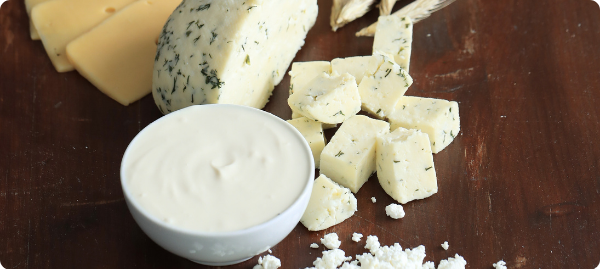
About the Solutions
INTACT BioPack delivers cutting-edge biodegradable and intelligent packaging solutions designed to reduce food waste and loss while safeguarding the environment. These smart solutions combine natural components with state-of-the-art technologies, to enhance food preservation, improve consumer convenience, and drive sustainability forward.
Safe and Sustainable by Design
Driven by food, market, and society’s requirements in terms of safety, quality, and environmental challenges, INTACTBioPack concept is based on developing a “safe and sustainable by design” approach to develop innovative active and smart packaging solutions well adapted to the specificities of traditional Mediterranean’s foods and tailored to maximize FWL reduction all through the supply chain and at home by also proposing consumer-targeted solutions.

Sustainability Begins at the Source
INTACT BioPack focuses on utilizing bio-based (non-food-based), biodegradable resources such as cellulose, PHA, and alginates as film supports, encapsulation matrices, or sensing layers. Additionally, agricultural residues like tomato peels, olive pomaces, chitosan, and plant-based chemo-sensitive dyes are used as active components.
The production and characterization of active ingredients (at the gram scale) adhere to protocols developed or under development in partner laboratories, meeting stringent eco-cost sustainability criteria.

Cutting-Edge Research for Advanced Packaging Solutions
Electrospinning and nano-emulsification techniques for essential oil encapsulation ensure their stability during processing and storage. These methods allow precise control over the application of active compounds, maintaining compliance with minimal inhibitory concentrations (MIC), odor and flavor thresholds, and legal requirements.
For microbiome-based solutions, encapsulation will primarily utilize alginate, starch, or whey protein. Additionally, plant polyesters will be explored for their novel potential as micro-encapsulation agents due to their hydrophobic surfaces and self-assembly capabilities (based on ITQB-NOVA preliminary findings).
RFID biosensors and colorimetric sensor arrays will be developed and calibrated to monitor headspace packaging composition (e.g., CO2 or other volatile metabolites). These sensors will enable tracking via smartphone (RFID) or direct visual cues (colorimetric) for high-value foods like seafood or fermented vegetables, particularly for monitoring at-home fermentation processes.
RFID biosensors and colorimetric sensor arrays will be developed and calibrated to monitor headspace packaging composition (e.g., CO2 or other volatile metabolites). These sensors will enable tracking via smartphone (RFID) or direct visual cues (colorimetric) for high-value foods like seafood or fermented vegetables, particularly for monitoring at-home fermentation processes.

Validation and Real-World Application
The expertise of the SAP (Stakeholders Advisory Platform) and data gathered during the project are focused on the technical, economic, and environmental validation of INTACT BioPack solutions under near-real conditions, including distribution, retail, and consumption scenarios.
To demonstrate the efficiency of the packaging concept—which integrates bio-based, active, and intelligent functionalities—four food categories are being tested for their ability to preserve quality and safety:

Bread or other cereal-based products

Meat or fish products

Dairy products (e.g., fresh cheese)

Raw and mildly processed fruits and vegetables
Consumer acceptance, preferences, and willingness to adopt and pay for active and intelligent biodegradable packaging are being analyzed, as shown by a specific case study conducted in Tunisia. Additionally, market acceptance is evaluated through in-depth interviews with food chain stakeholders.
Environmental performance is a key focus, with assessments ensuring that active packaging solutions are home-compostable and strike a balance between antimicrobial effectiveness and biodegradability. Information and Communication Technology (ICT) solutions are designed to be reusable to minimize costs and avoid hindering biodegradation.






